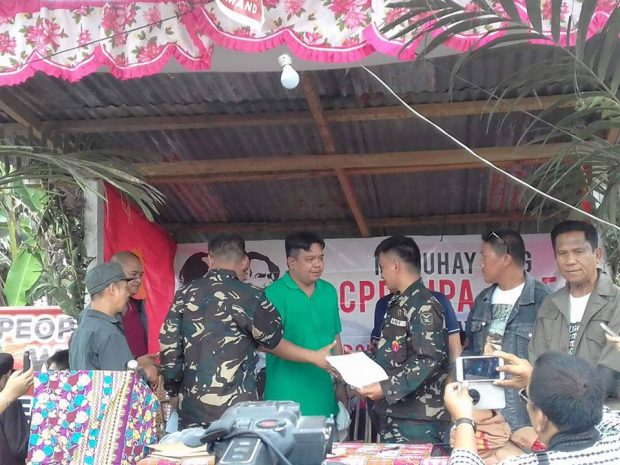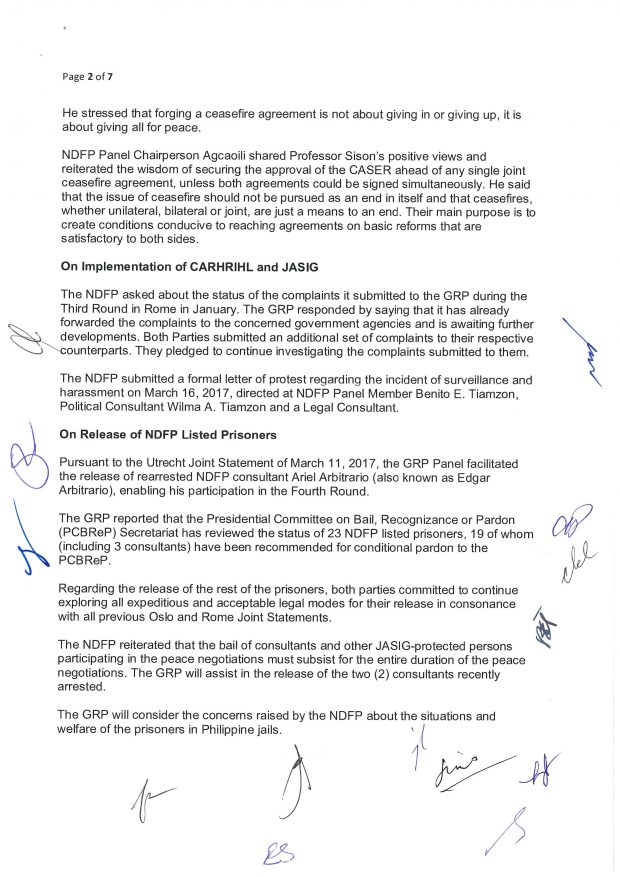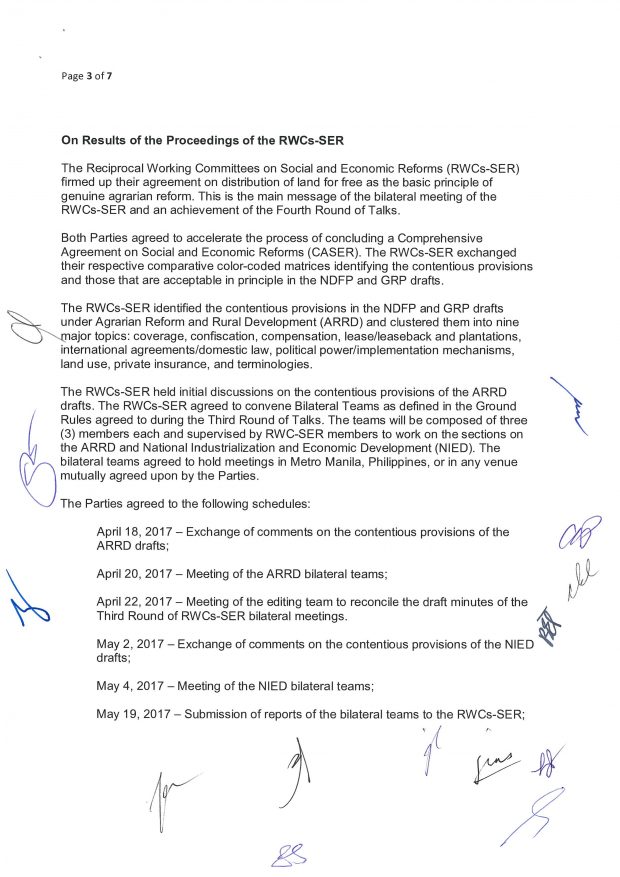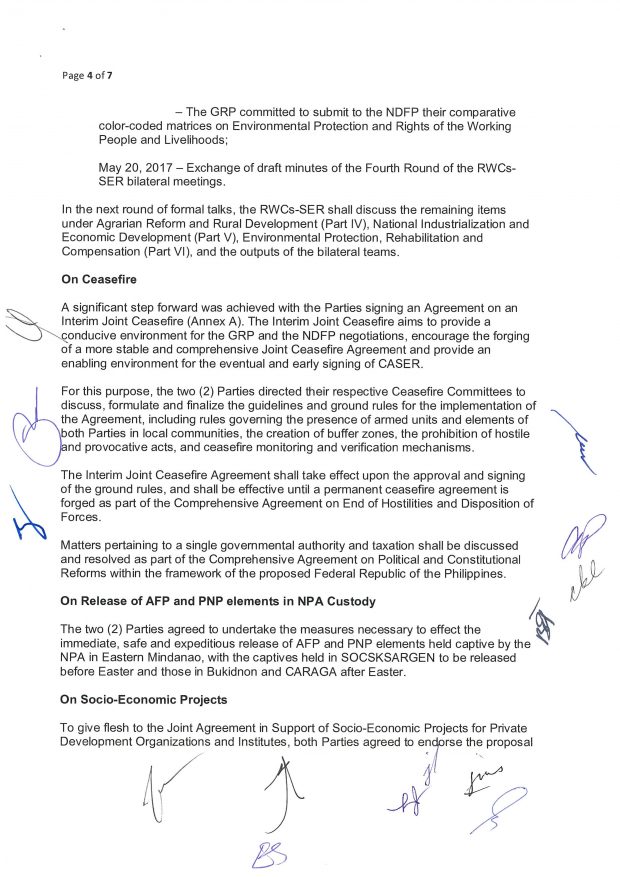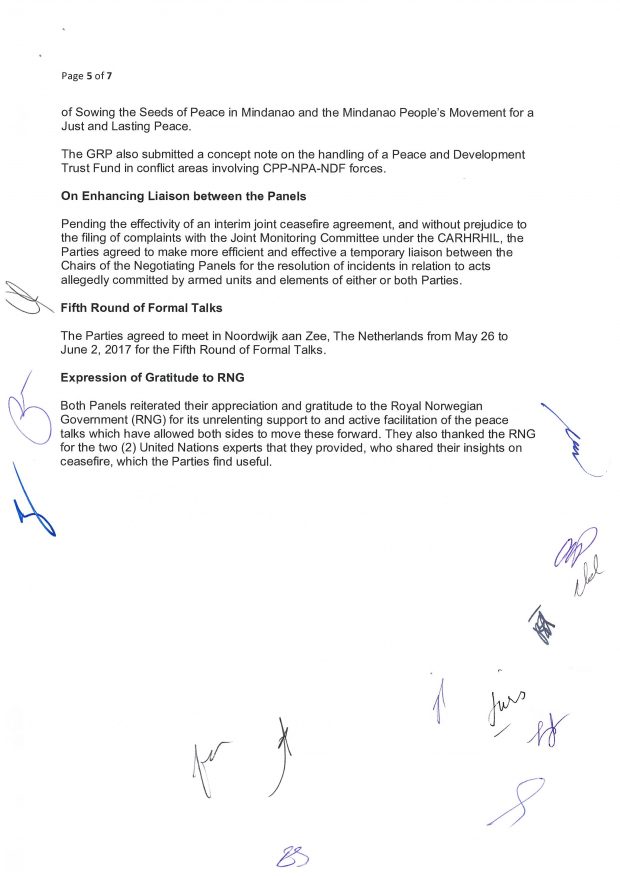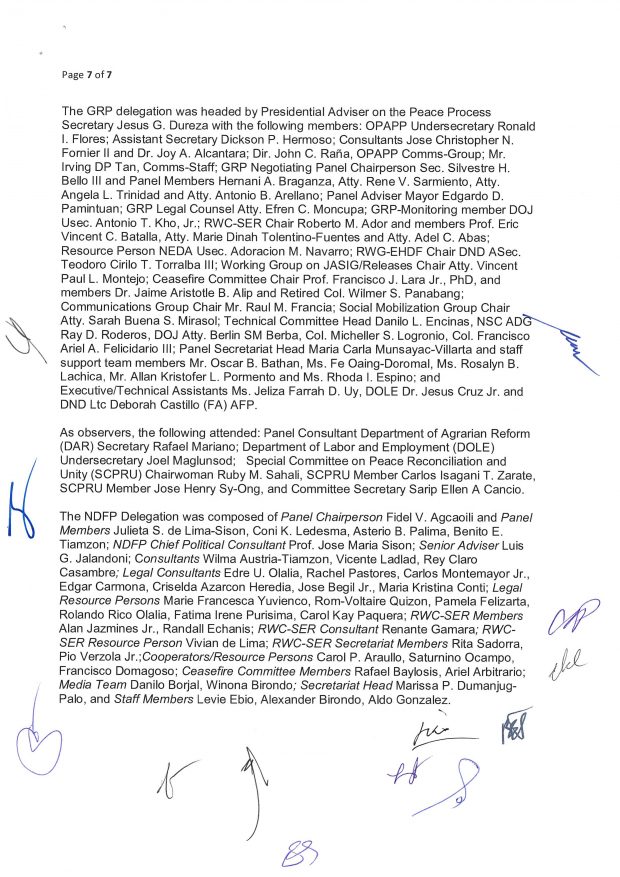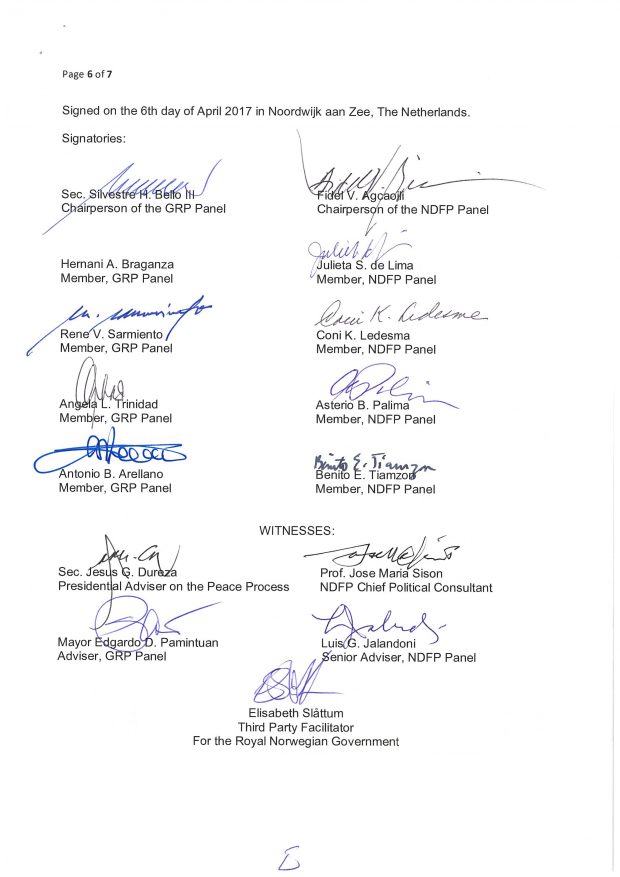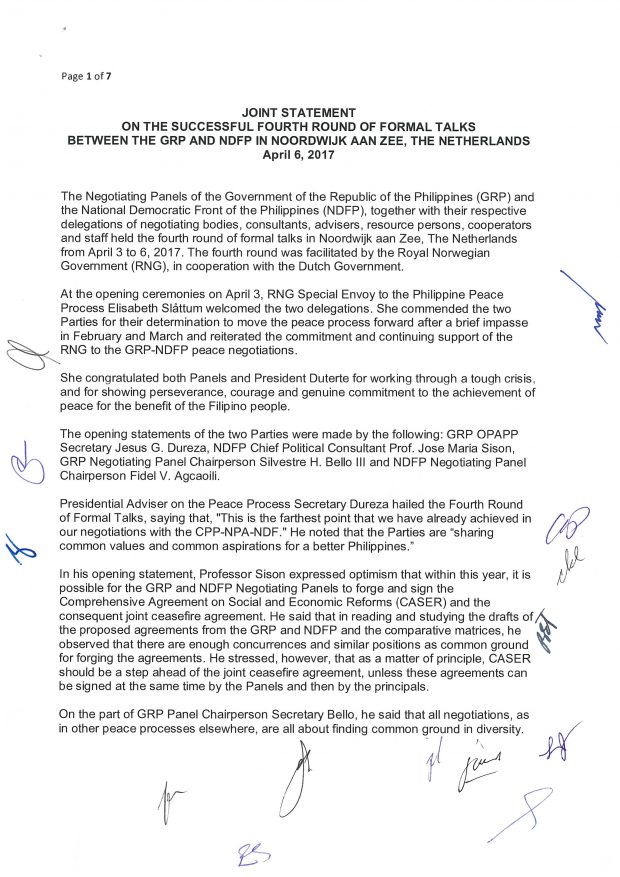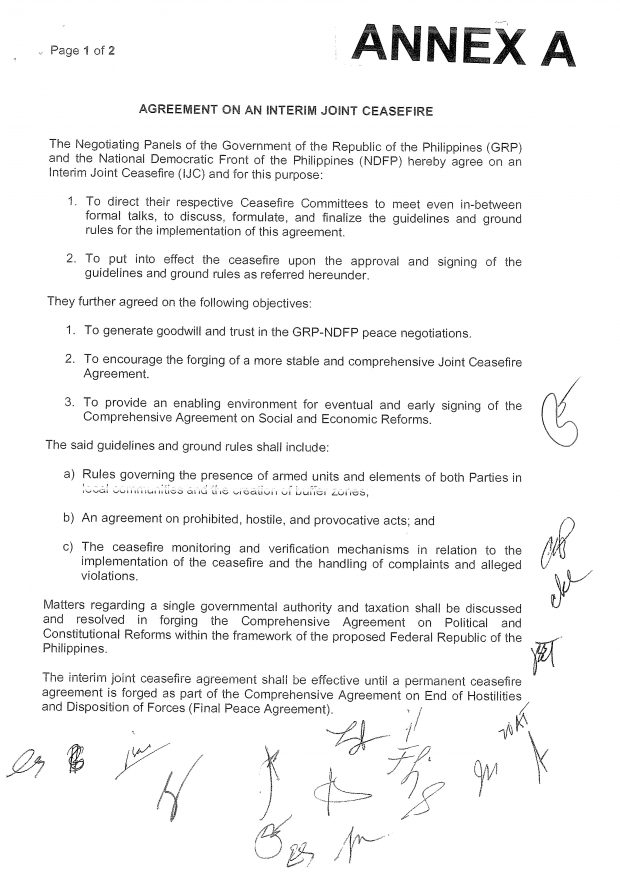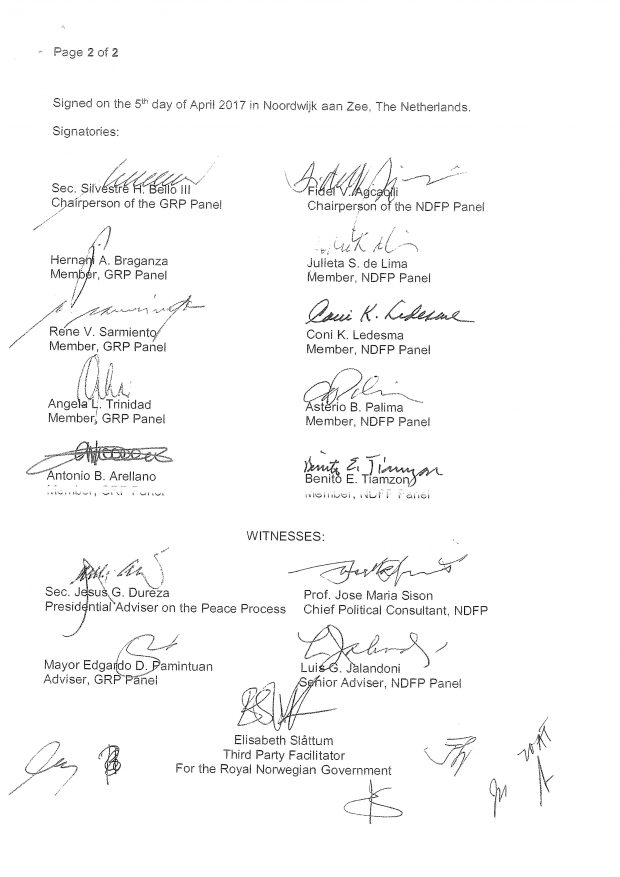NOORDWIJK, The Netherlands—Defying odds, the National Democratic Front of the Philippines (NDFP) and the Government of the Republic of the Philippines (GRP) negotiating panels pushed through with the opening ceremony of their fourth round of formal peace negotiations yesterday, April 3. Despite fears that GRP President Rodrigo Duterte’s new “barest conditionalities” may cause the talks’ cancellation, both panels worked feverishly until late Monday night to find enough common ground to still make the formal round possible.
The “commonness” was obvious on the press statement the NDFP released after the ceremony entitled “NDFP, GRP determined to resolve snags, move talks forward.” Its first paragraph also said “both Parties express(ed) determination to resolve current problems and move the talks forward.” While the NDFP panel is not short on giving due credit to the current GRP panel headed by the veteran Silvestre Bello III, it is simply not every day it sees its counterpart deserving of high praise or “equal billing” in its own press statement.
Presidential Adviser on the Peace Process Jesus Dureza in his statement at yesterday’s opening ceremony said they are very confident the talks would be moving dramatically forward. “This is the farthest point that we have already achieved in our negotiations with the Communist Party of the Philippines(CPP)-New People’s Army (NPA)-National Democratic Front. We are now in the fourth round of talks,” he said.
Dureza was wrong if he was referring to the number of rounds held or the number of agreements signed under one GRP administration. The Fidel Ramos government forged 10 major agreements and statements with the NDFP between 1992 and 1998, including the all too important The Hague Joint Declaration, the Joint Agreement on Safety and Immunity Guarantees, and the Comprehensive Agreement on Respect for Human Rights and International Humanitarian Law. The Ramos government and the NDFP also succeeded in hammering out additional agreements such as on the Role of the Third Party Facilitator, the Joint Monitoring Committee, and Joint Agreement in Support of Socio-Economic Projects of Private Development Organizations and Institutes.
Dureza was correct, however, if he was referring to the number of formal talks held in so short a time. Under Duterte’s nine-month old government, there have been four formal rounds so far and two informal talks. The first informal talk in June brought both parties back to the negotiating table after more than five years of impasse and the second held last month brought the stalled talks back on track after Duterte cancelled the formal talks.
This morning, the GRP and the NDFP have begun formal negotiations on at least two ceasefire proposals. Both parties are shrugging off a shaky start characterized by an opening ceremony that has been postponed twice. Various peace talks committees are now holding one meeting after another.
Some groups though are bent on depicting the “warm and cordial” period of the GRP-NDFP peace negotiations are over.
Biggest failure
A naysayer is former GRP Negotiating Panel chairperson Alexander Padilla, former President Benigno Aquino’s chief negotiator with the NDFP. On ANC’s “Talkback” yesterday, Padilla scored both the NDFP and the GRP and said the ongoing peace negotiations are likely to fail.
First, Padilla said, none of the NDFP panel members represent nor have control of the Communist Party of the Philippines and the New People’s Army. “The NDF always says that the CPP-NPA is part of their organization but it’s not in reality. Even Benito Tiamzon, who is (sic) supposedly the leader before he was arrested, I don’t think he represents the CPP-NPA. None of the panel does,” he said. Second, Duterte’s four conditions are recipes for failure, Padilla added. “If you set conditions for the resumption of talks on either side, I think that’s a recipe for failure,” he said.
Padilla earned for himself a scathing riposte from the NDFP who said Padilla was in fact the biggest failure in the history of the GRP-NDFP peace negotiations.
The NDFP said the talks with Padilla as GRP negotiating panel head did not progress an inch. The group said Padilla in fact dragged the negotiations backward by trying to tear apart all the important agreements already signed, such as describing The Joint Hague Declaration as “a document of perpetual division” and implying there was really no need to negotiate socio-economic reforms. Padilla just wanted the NDFP to surrender, the NDFP said.
“That is why under his watch as head of the GRP negotiating panel, the talks could not proceed to the second item on social and economic reforms which even the GRP panel under Silvestre Bello acknowledges as the ‘heart and soul’ of the peace negotiations,” the NDFP said.
The NDFP slammed Padilla’s claim the NDFP do not represent the CPP and the NPA in the talks. “He is implying that Pres. Duterte and the rest of the GRP panel are stupid for talking to these leaders,” the NDFP said.
“Padilla is known to be a ‘die-hard Yellow’ and wants the talks to fail under Duterte. Padilla should shut up. He is now irrelevant to the current peace talks,” the group added.
The former chief negotiator did not also get any sympathy from Duterte’s peace adviser. “Let him speak for himself,” Dureza said.
“Peace-spoiling by US-stooges”
But the biggest peace spoilers, as far as the Left is concerned, are not the “Yellows” but elements in the GRP’s own Armed Forces of the Philippines (AFP). In a statement, the CPP called Defense Sec. Delfin Lorenzana, National Security Adviser Hermogenes Esperon and AFP Chief of Staff Gen. Eduardo Año “US stooges seeking to derail the NDFP-GRP peace negotiations.”
The CPP complained that the AFP, directed by three of Duterte’s highest security officials, has embarked on an aerial bombardment campaign in Mindoro, Agusan del Norte and Davao Oriental, Abra, Agusan del Sur, Sarangani, Davao and other provinces in the past few days alone. AFP troops have also occupied Barangay Baglay in Lagonglong, Misamis Oriental, as well as other villages in Abra, Marilog, Sultan Kudarat and Mindoro, the CPP said. Moreover, AFP troops have also reportedly killed civilians Renel Mirabeles of Bagong Silang, Sipocot, Camarines Sur (March 30), Jeffrey Santos of Barangay Tagbinonga, Mati, Davao Oriental (March 30), and Danilo Nadal of Barangay Tibagun, Pantukan, Compostela Valley (April 2).
“Since February, close to 50 peasants and members of the national minority, mostly residents of areas which the state security forces suspect to be part of the NPA mass base, have been killed by operating troops of the AFP,” the CPP said.
“In waging aerial bombardments and a campaign of armed suppression against the people, they are, however, succeeding only in convincing thousands of people to support and join the New People’s Army,” the CPP added.
Before the GRP peace negotiators flew to this city for the ongoing round of talks, Lorenzana himself tagged the the CPP and NPA as “terrorists” and “thugs” which the CPP said goes against the January unilateral move of the GRP Negotiating Panel asking the United States to remove NDFP Chief Political Consultant Prof. Jose Ma. Sison from its terrorist listing. Instead, Lorenzana insist the fourth round of peace talks be devoted to forging a bilateral ceasefire over the substantive agenda of socio-economic reforms.
“Lorenzana and his fellow US stooges are trying to prevent peace negotiations from moving forward in efforts to discuss and resolve the substantive socio-economic issues, especially the most crucial issues of genuine land reform and national industrialization,” the CPP in a statement said.
Socio-economic reforms and ceasefire
Indeed, the ongoing round of talks has problems. While the NDFP stands pat on forging an agreement on socio-economic reforms before a bilateral ceasefire is signed, the GRP is now insisting on a bilateral truce accord so that Duterte will allow his negotiators to continue talking with the Left.
This difference in focus though, if anything, is making the negotiators, consultants, advisers and staff work even harder with simultaneous meetings and discussions. Both panels are obviously “resolving snags” brought about by naysayers, military campaigns against civilian communities, and Duterte’s volatility. All the hard work, both parties say, are for them to “stay at the negotiating table.”
Despite a shaky start, this ongoing round of talks may still spring more surprises, achieving more agreements that would offer the Filipino people what The Hague Joint Declaration described as “just and lasting peace.”# (Text by Raymund B. Villanueva / Featured photo by Nwel Saturay)
